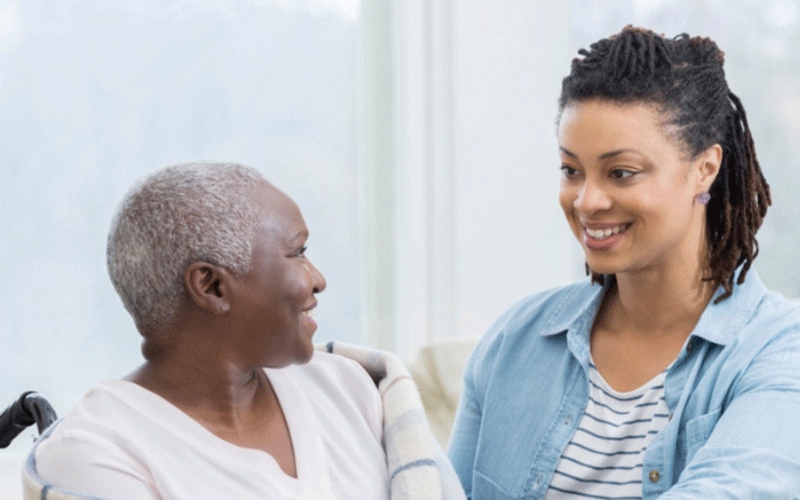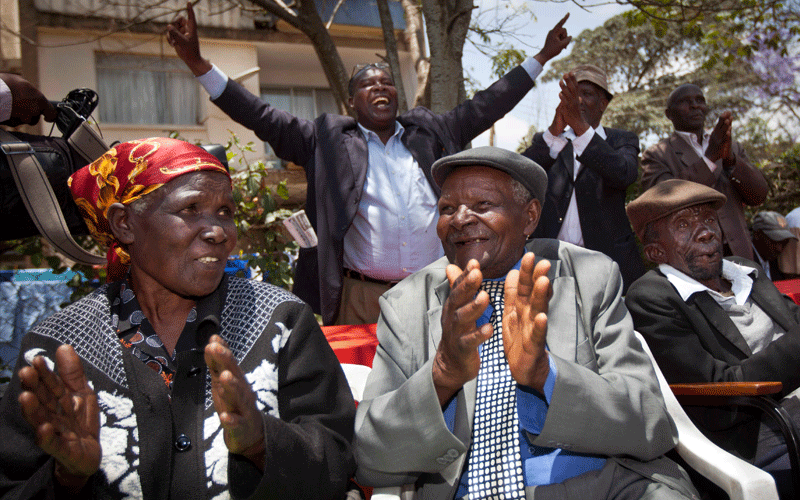Are elderly homes still off-limits?

There is stigma that comes with homes for the elderly, and many still feel ashamed to even think of taking their parents there…
Milliam Murigi @millymur1
Luciana Wairimu agrees with those who say “it depends” and disagree with those who say you should never put your parent in an elderly home because that is when they need you most.
Wairimu, the only daughter with three brothers always lived near her parents and loved it.
When her father died in 2016, she watched her mother slowly slip into the throes of dementia, an overall term for diseases and conditions characterised by decline in memory, language, problem-solving and other thinking skills that affect a person’s ability to perform everyday activities.
Wairimu invited her mother to live with her and her family. Her mother sold her house to proceed with the move.
Though it wasn’t easy for them, they wanted to be with her. They thought it would be unethical if they had put her into an elderly home just because it was sometimes inconvenient to take care of her.
Furthermore, her brothers couldn’t accept such a move, especially since in Kenya, any mention of taking a parent or relative to an elderly home is almost a taboo. It is considered a rejection of the said relative by your family.
No social stimulation
“I remember when I mentioned this to my brothers and they told me if I am tired of living with her I should tell them since they were willing to take care of her rather than see her taken to an elderly home,” she says.
However, as dementia worsened she became incontinent. Despite one’s best efforts using incontinence supplies and tools, dementia removes the ability to judge when one must go to the bathroom, and sooner or later there is an accident.
Still, they wanted to care for her. They had to strip out the carpeting on their house floor because of the number of accidents she had.
They used every cleaning solution known to man to keep her, and the family well.
Since the rest of the family wasn’t home during the day, Wairimu’s mother would not eat well. She started to spend most of the day in bed since there was no one to stimulate her socially.
Caregivers came and went. She started losing weight and getting depressed. She fought with Wairimu daily when it came to medication, claiming she had already taken them.
Important role
That was when Wairimu had to make the decision since her mother’s care had escalated beyond their skill and knowledge.
The situation was not good for her mother or for them and it also put the family at risk.
Without her brothers’ knowledge, she found a wonderful elderly/nursing home for her mother with a lot of social activities.
Leaving her there was the worst day of her life. She felt as though she had betrayed, abandoned, and shunned her own mother.
“The most surprising thing was after a few weeks, she started eating regularly and gaining weight. She had her medication regularly so she started to feel better.
She was sleeping and waking on a regular schedule, and she was surrounded by people smiling at her and laughing with her. In short, she began to thrive,” Jojiana explains.
Seeing her mother getting back on track was the happiest thing and since then Wairimu never judges people who put their parents into elderly homes.
Her advice for those with elderly parents is instead of leaving them alone to suffer, consider taking them to an elderly home where they will be taken care of.
Joseph Wanyeki, founder and executive director Prolong life Kenya, a non-govermental organisation, whose mission is to restore hope and dignity to the elderly, says the issue of taking our elderly to elderly homes has, for long, been a taboo.
Traditionally, old people were highly respected and taking care of them was a noble duty.
They played an important role of helping integration of the society, preservation of its cultural values, transmission of knowledge and skills, settling of disputes, and educating the young.
However, everything is gradually changing because of rising cost of living and migration into the cities or abroad, which means many Kenyans are living away from their parents and consequently unable to fulfill their traditional role of caring for the elderly and this has given rise to elderly homes.
“Emergency or elderly homes is a good thing because, in today’s modern Africa, old people are almost being neglected.
However, those with financial capabilities are sending their own to elderly homes.
With such homes, our seniors are able to receive the attention needed making them live longer and happier, “says Wanyeki.
He adds the best thing about these homes is they are always open to family and friends so whenever they feel like visiting their loved one.













